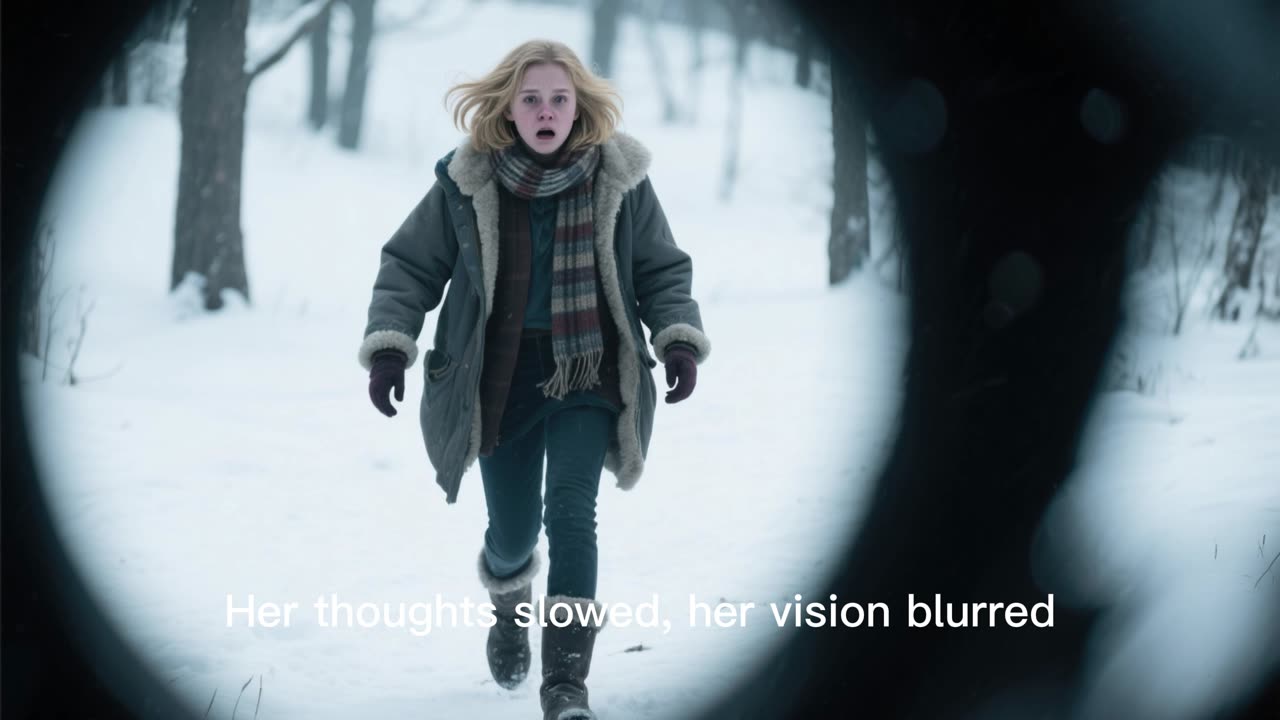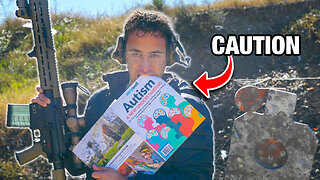Premium Only Content

Frozen in the Wild
The Ordeal of Jean Hilliard
The night was so cold it seemed to freeze sound itself. In the deep winter of December 1980, the small town of Lengby, Minnesota, lay buried beneath snow and silence. Temperatures had fallen below −30°C, the kind of cold that kills within minutes. On that night, nineteen-year-old Jean Hilliard was driving home after visiting a friend, her breath fogging the windshield as her car’s headlights sliced through the darkness. The roads were slick, the air like glass, and the world outside was nothing but frozen trees and white emptiness.
It was just after midnight when her car hit a patch of ice. The tires skidded, the steering wheel spun, and the vehicle veered off the road into a ditch. The engine sputtered and died. Panic rose in Jean’s chest as she tried to restart it, but the car was silent. She had no heater, no phone, and no one in sight for miles. She knew she couldn’t stay inside — she’d freeze to death before dawn.
She remembered that her friend Wally Nelson lived just a couple of miles away. Two miles didn’t sound far, but in that deadly cold, it might as well have been forever. Still, she pulled her coat tight, wrapped her scarf over her face, and stepped out into the snow. The wind hit her like knives. Her boots crunched on the frozen ground, and her breath crystallized in the air. Each step was agony, her muscles stiffening, her eyelashes turning to ice.
The night grew darker, colder, crueler. After walking for what felt like hours, her limbs began to go numb. She fell once, twice, then lost count. Her thoughts slowed, her vision blurred, and she could no longer feel her hands or feet. Somewhere in the distance, she thought she saw the faint outline of Wally’s farmhouse — a single square of light flickering through the trees. She tried to call out, but no sound came. Her body gave up. She fell face-first into the snow, just fifty feet from his door.
By the time dawn broke, Jean was a statue. Her body was frozen solid, her skin pale as marble, her eyes wide open but glassy and lifeless. When Wally stepped outside to start his truck, he saw her lying there — stiff as a board, her face ghostly in the morning light. He thought she was dead. But when he touched her cheek, he noticed something — a faint, fragile sign of life, a single bubble of breath that escaped her lips.
Panicked, he dragged her inside, her limbs so stiff they barely bent, and called for help. The local doctor, Dr. George Sather, was stunned when he saw her. Her temperature was too low to register on the thermometer. Her pulse was nearly undetectable. Her skin was so hard that needles snapped when they tried to insert them. Still, he refused to pronounce her dead. He ordered warm blankets, heating pads, and patience. Slowly, carefully, they thawed her body — an hour at a time, breath by breath.
The nurses waited, praying she would return. Then, after hours of silence, a miracle happened. Her eyelids flickered. Her lips trembled. Her pulse, faint and slow, began to rise. By morning, she opened her eyes and whispered a single word — “Cold.”
The room erupted in disbelief. Against every law of medicine, against logic itself, Jean Hilliard was alive. Not just alive — completely conscious, with no brain damage, no frostbite severe enough to lose any limbs. Her recovery was beyond explanation.
Scientists later said her body had entered a state of “frozen suspension,” her blood thickening but never freezing entirely, preserving her organs like nature’s own cryonics. She was, for six hours, more ice than flesh — and yet, somehow, her heart had refused to stop.
When reporters asked her what she remembered, she smiled faintly and said, “I just walked and got so tired, and then I fell asleep. The next thing I knew, I was in a hospital, and everyone was looking at me like I’d come back from the dead.”
In a way, she had. Her story spread around the world, a testament to the mystery of the human body and the quiet strength of the will to live. Decades later, doctors still cite her as one of the most extraordinary cases of hypothermic survival ever recorded.
Jean went on to live a long, ordinary life, far from fame, but she carried that night with her always — the memory of a cold so deep it nearly stole her soul, and of a miracle so strange it could only be called grace.
She once said that she didn’t think of herself as lucky, just alive for a reason she would never fully understand. And maybe that’s the truth of survival — it’s not about strength or courage, but about something unseen, something that whispers to the heart even when the world goes silent.
-
 21:39
21:39
Nikko Ortiz
4 days agoI Take A North Korean Shooting
74.2K10 -
 23:01
23:01
GritsGG
16 hours agoWarzone Solo Dubular! Last Night Time Solo???
7.81K -
 22:47
22:47
The Pascal Show
14 hours ago $0.02 earnedTHEY’RE HIDING EVIDENCE?! Candace Owens EXPOSES Foreign Connection In Charlie Kirk Shooting
16.3K22 -
 LIVE
LIVE
Lofi Girl
3 years agolofi hip hop radio 📚 - beats to relax/study to
257 watching -

FreshandFit
14 hours agoLas Vegas Takeover!
192K18 -
 2:19:29
2:19:29
Badlands Media
14 hours agoDevolution Power Hour Ep. 404
75.2K40 -
 6:02:58
6:02:58
Drew Hernandez
1 day agoGOP COOKED INTO DENIAL & 12 ISRAELI-LINKED PHONES DETECTED AT UVU DAY OF CK EXECUTION?
55.5K34 -
 2:46:08
2:46:08
TimcastIRL
10 hours agoFAA To STOP Flights Over Shutdown, May CLOSE Airspace, Thanksgiving Travel APOCALYPSE | Timcast IRL
203K124 -
 1:56:20
1:56:20
Tucker Carlson
10 hours agoIt’s Time to Decide: America First or Lindsey Graham’s Psychosexual Death Cult?
117K427 -
 9:07:39
9:07:39
SpartakusLIVE
12 hours agoBattlefield 6 - REDSEC || ARC Raiders Later? || Anybody Want Warzone???
78.5K5